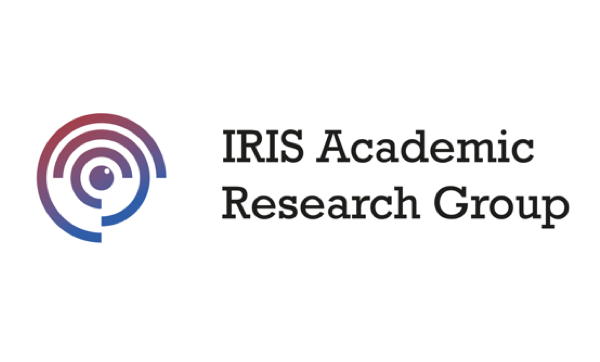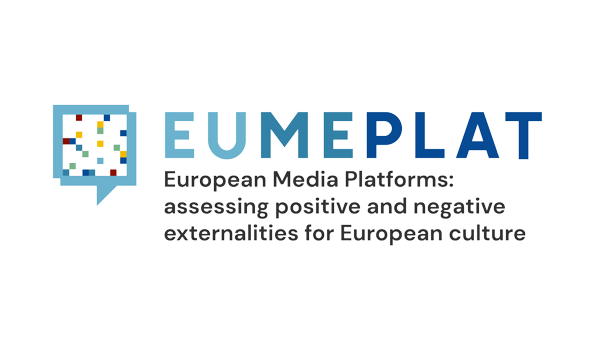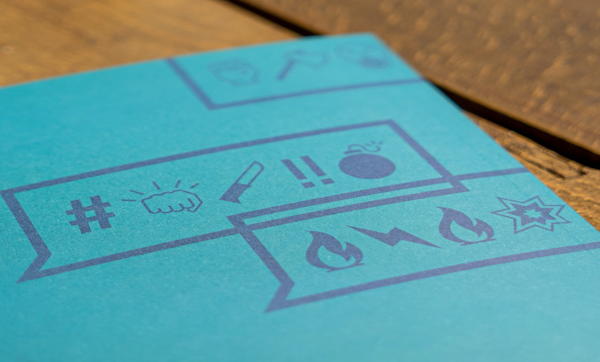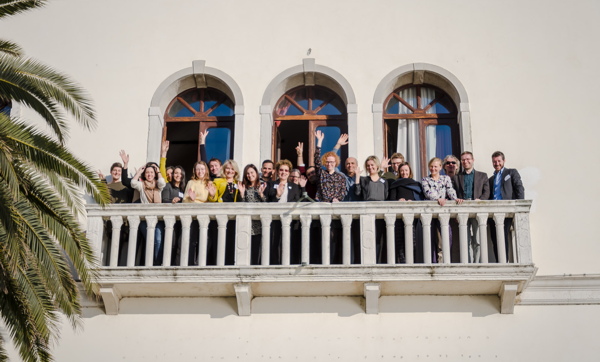Data Science for Society

The research activity of the laboratory focuses on the study, analysis and modelling of socially relevant problems through a quantitative and highly interdisciplinary approach. Research topics include:
- Study of online information spreading and consumption
- Analysis of polariation dynamics and radicalisation in digital media
- Development of data-driven strategies and solutions to counter misinformation and hate speech
Contacts:
fabiana.zollo@unive.it
Tel.: +39 041 234 8415
Lines of research
- Dynamics of information spreading, polarisation, and radicalisation in digital media
- Santoro, A., Galeazzi, A., Scantamburlo, T., Baronchelli, A., Quattrociocchi, W., & Zollo, F. (2023). Analyzing the changing landscape of the Covid-19 vaccine debate on Twitter. Social Network Analysis and Mining, 13(1), 115
- Cinelli, M., Pelicon, A., Mozetič, I., Quattrociocchi, W., Novak, P. K., & Zollo, F. (2021). Dynamics of online hate and misinformation. Scientific reports, 11(1), 1-12
- Zollo, F. (2019). Dealing with digital misinformation: a polarised context of narratives and tribes. EFSA Journal, 17, e170720
- Data-driven strategies and solutions to counter misinformation and hate speech
- Vicario, M. D., Quattrociocchi, W., Scala, A., & Zollo, F. (2019). Polarization and fake news: Early warning of potential misinformation targets. ACM Transactions on the Web (TWEB), 13(2), 1-22
- Schmidt, A.L., Peruzzi, A., Scala, A., Cinelli, M., Pomerantsev, P., Applebaum, A., Gaston, S., Fusi, N., Peterson, Z., Severgnini, G. and De Cesco, A.F., 2020. Measuring social response to different journalistic techniques on Facebook. Humanities and Social Sciences Communications, 7(1), pp.1-7
- Kralj Novak P., Scantamburlo T., Pelicon A., Cinelli M., Mozetič I. and Zollo F., "Handling Disagreement in Hate Speech Modelling", IPMU - Information Processing and Management of Uncertainty in Knowledge-Based Systems, 11-15 July 2022 Communications in Computer and Information Science (CCIS) series, Springer
- Risk e science communication
- Davies, S. R., Franks, S., Roche, J., Schmidt, A. L., Wells, R., & Zollo, F. (2021). The landscape of European science communication. Journal of Science Communication, 20(3), A01
- European Food Safety Authority (EFSA), Maxim, L., Mazzocchi, M., Van den Broucke, S., Zollo, F., Robinson, T., Rogers, C., Vrbos, D., Zamariola, G. and Smith, A., 2021. Technical assistance in the field of risk communication. EFSA Journal, 19(4), p.e06574
- Delmastro, M., & Zollo, F. (2021). Social monitoring for food policy and research: Directions and implications. Food Policy, 105, 102147
- Cinelli, M., Peruzzi, A., Schmidt, A. L., Villa, R., Costa, E., Quattrociocchi, W., & Zollo, F. (2022). Promoting engagement with quality communication in social media. PloS one, 17(10), e0275534
- Ethical and social impact of machine learning and data-driven technologies
- Cristianini, N. Scantamburlo, T., and Ladyman, J. (2021), “The Social Turn of Artificial Intelligence”, AI & Soc, Springer
- Scantamburlo, T. (2021) “Non-Empirical Problem in Fair Machine Learning”, Ethics and Information Technology, Springer, ISSN 1572-8439
- Cristianini, N., and Scantamburlo, T. (2020) “On social machines for algorithmic regulation”. AI & Soc. 35, pp. 645–662, ISSN 0951-5666
Collaborations
Outreach and dissemination
The research group is extremely active in disseminating research results to the general public. A selection of these activities can be found below:
- Fabiana Zollo, “Disinformazione e cancro” Rai 3 Elisir
- Fabiana Zollo, “Perché ci crediamo? Tra informazione e disinformazione” CICAP Fest 2022
- Teresa Scantaburlo, Parole Ostili
- Fabiana Zollo, TEDx Bari
- PICS “Picturing the Communication of Science”, a project coordinated by FRAME - Divagazione Scientifiche and supported by Compagnia di San Paolo
Non-institutional activities
- Fabiana Zollo serves as external expert in the Working Group 'COM - Social Research Methods and Advice' established by EFSA (European food safety authority): https://www.efsa.europa.eu/en/science/scientific-committee-and-panels/comco#working-groups
- Fabiana Zollo was a member of the "Monitoring Unit to counter the spread of fake news related to COVID-19 on the web and social networks" set up within the Department for Information and Publishing of the Presidency of the Council of Ministers
Research projects

GLOBAL HEALTH SECURITY ACADEMIC RESEARCH - IRIS - COVID-19 Vaccine Confidence and Infodemics Initiative
The COVID-19 pandemic is not just a health problem - it is also fueling an infodemic on an unprecedented scale. Since the beginning of the COVID-19 outbreak, the digital media ecosystem has been flooded with "alternative explanations" and conspiracy theories. Purveyors of conspiracy theories emerge in uncertain times when they have audiences eager for some kind of explanation for unexplained phenomena, such as the COVID-19 pandemic. As a result, the public’s attention can shift from medical/government advice towards alternative explanations which are dangerous and can have negative effects on societies, impacting the ways in which people process and act upon information. In the context of COVID-19, mis- and disinformation poses a severe risk to the acceptance and uptake of vaccines as it can seed doubts about the importance, safety, or effectiveness of vaccines and undermine public trust in vaccines, science and in official institutions.
IRIS Academic is a research group - named after a Greek goddess ("Iris") of communications and messages - dedicated to understanding infodemics and promoting healthy information ecosystems. It is a collaborative project founded by some of the world’s leading researchers and institutions who are driving cutting-edge research and multidisciplinary methodologies across four topic pillars: susceptibility to misinformation, interventions to counter misinformation, vaccine hesitancy, and managing infodemics. Within each of these pillars, the researchers are working to identify and define measures, drivers and solutions that help to understand relationships between susceptibility to misinformation, the spread of misinformation, vaccine hesitance and effective interventions to protect people from misinformation.
Website: https://www.irisacademic.org

EUMEPLAT - EUropean MEdia PLATforms: assessing positive and negative externalities for European culture
The project aims at analysing the role of media platforms in fostering or dismantling European identity. The assumption is that the European dimension has rarely been dominant in media history. In particular, the project focuses on the “platformization” process, as the rise of new closed Web architectures, to inquire about its positive and negative externalities, functional and dis-functional consequences.
Positive externalities are beneficial to society at large. Detecting the insurgence of negative effects is a fundamental duty for scholars and policy-makers, as externalities of both kinds tend to reinforce themselves, giving rise to positive loop feedbacks and critical vicious circles. Negative externalities include misinformation, toxic debate, exclusion of independent voices; positive externalities encompass European co-productions, or practices able to bring people out of the information bubble.
A multidisciplinary analysis of platformization will be conducted in three fields: news, video sharing, media representations, with the final goal to offer both a theoretical and empirical synthesis. The research question is whether or not new platforms – YouTube, Netflix, NewsFeed - are making European culture more European, based on indicators related to production, consumption and representation. Patterns will be detected by comparing national, regional and European and level.
Website: https://www.eumeplat.eu

IMSyPP - Innovative Monitoring Systems and Prevention Policies of Online Hate Speech
The project IMSyPP "Innovative Monitoring Systems and Prevention Policies of Online Hate Speech", coordinated by the Jožef Stefan Institute in Ljubliana, aims to analyse the mechanisms governing the formation and spread of online hate speech and to formulate data-driven proposals to counteract its spread. Hate speech is widespread not only on social media, but also in comments on news websites. Different ways of presenting news can generate different and sometimes inappropriate reactions from users. The aim of the project is the automatic identification of hate speech in different languages (Italian, English, Dutch) in order to identify its triggers, recommend effective counter-narratives and propose appropriate policies to European regulators. The consortium consists of renowned research groups in the field of Artificial Intelligence and Machine Learning (Jozef Stefan Institute), the dynamics of online information dissemination (Ca' Foscari), and the development of specific counter-narratives (University of Cyprus). Policy promotion at the European level is coordinated by the Italian Communications Authority (AGCOM). The dissemination of the project activities will be addressed to ERGA (European Regulators Group for Audiovisual Media Services), media companies, journalists, the scientific community and citizens.
The Ca' Foscari research group consists of Fabiana Zollo, scientific director, Walter Quattrociocchi and Matteo Cinelli. The project involves the development of models and machine learning techniques for the identification of hate speech, and a quantitative analysis of the phenomenon in order to understand its dynamics in greater depth. A pilot study on possible counter-narratives will also be conducted and recommendations will be made for policies and actions to be taken to combat online hate speech.
The dissemination activities of the project include the organisation of training activities for civil servants and journalists. A communication campaign will also be conducted to raise public awareness of the issue.
Website: http://imsypp.ijs.si

QUEST - QUality and Effectiveness in Science and Technology communication
QUEST is a Research and Innovation project under the funding program "SwafS-19-2018-Taking stock" and re-examines the role of science communication. QUEST aims to improve science communication through a three-step approach, analysing three modes of communication: journalism, social media and museums.
The project will achieve this by starting from the study of current science communication, developing tools and methodologies to assess the quality of science communication through these modalities, proposing and testing innovative practices to address the difficulties. QUEST will work to provide new skills and incentives for journalists, scientists and other R&I stakeholders to communicate science to citizens effectively.
Website: https://questproject.eu
Last update: 02/07/2024
